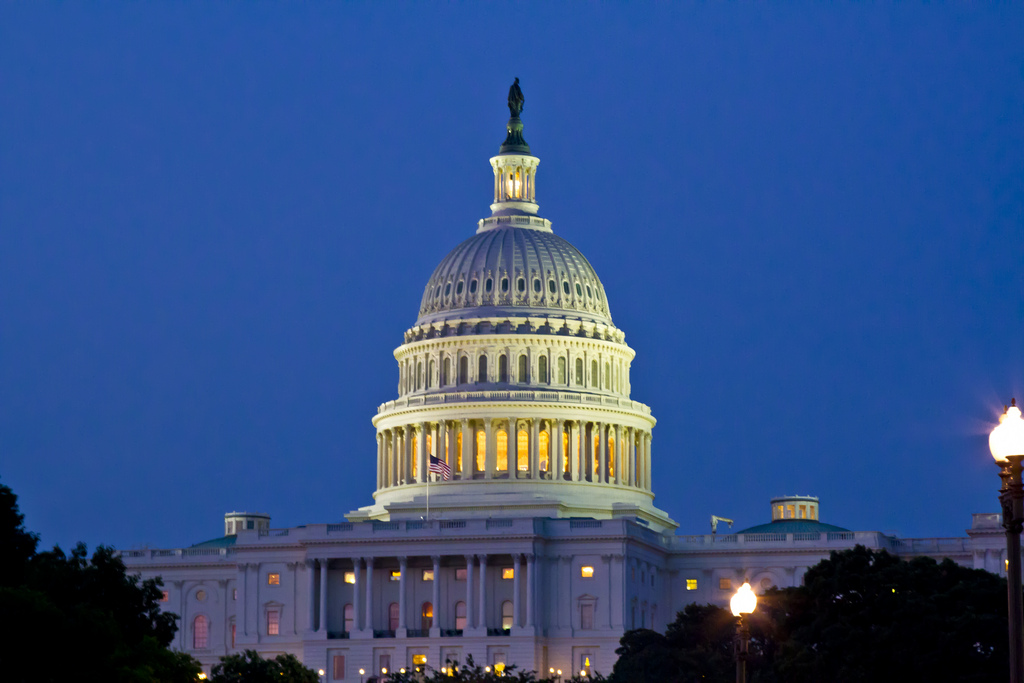Friday, January 19

UNWELCOME HOLIDAY?
US lawmakers struggle to pass new funding bill as shutdown looms

The US Government could shut down for the first time since 2013 today, as the third temporary funding bill of the fiscal year expires.
Senate Republican leaders are attempting to avert a shutdown by pushing a short-term bill that would see the government funded through February 16; they are at least nine votes shy of the 60 needed to keep the government operating.
With Republicans and Democrats at loggerheads over the status of “Dreamers”—adults brought into the US as undocumented children—the government is expected to shut down.
Last September, President Trump revoked an Obama-era executive order protecting some 700,000 Dreamers from deportation, leaving Congress with a March deadline to pass a protective immigration deal. Democrats have refused to sign any short-term funding bill without also passing such legislation, while Republicans are reluctant to put anything forward, as Trump is unlikely to sign it.
With the situation stuck between a rock and a hard place, expect the US economy to suffer for it—2013’s sixteen-day shutdown cost the economy $24 billion and put 850,000 federal workers temporarily out of work.
LOCKDOWN
Saudi blockade of Yemen set to resume after brief respite

Yemen faces a return to blockade conditions today, as a 30-day Saudi reprieve comes to an end.
In November 2017, Riyadh intensified its air and naval blockade after Iranian-backed Houthi rebels fired a missile on the capital. Easing came in December, following a UN declaration that Yemen—where over 22 million require aid— is home to ‘the largest humanitarian crisis in the world’.
Control over the capital, Sanaa, its airport and the Red Sea port of Hudaydah belongs to the Houthis. The UN-backed government of President Abdrabbuh Mansur Hadi is nominally in control of the country’s southeast. Regardless, Mr Hadi’s power is paper thin; in reality, control is distributed among a number of local players that are only temporarily united by anti-Houthi sentiment.
8.4 million Yemenis are on the verge of famine and cholera has spread to over a million people. With thousands of lives at risk, expect international pressure to force concessions from Riyadh. Given that stopping weapon proliferation is still a priority, expect the Saudis to offer an increase in the carefully inspected aid flights into Sanaa and shipments into Hudaydah.
ECONOMIC UNCERTAINTY; POLITICAL REALITY
Merkel and Lagarde discuss Greece and Eurozone reforms

Amid frantic coalition negotiations and prospects for Eurozone reform, German Chancellor Angela Merkel is scheduled to hold talks in Berlin today with IMF Managing Director Christine Lagarde.
Topping the agenda will be IMF participation in the economic rescue programme of Greece. Regardless, Chancellor Merkel’s political difficulties at home are likely to prevent her from committing Berlin to any new relief agreements, at least in the short term. Similarly, prospects for Eurozone reform will also be discussed, but the chancellor will need to form a government before she can readily engage in such contentious negotiations.
Expect this week’s Eurogroup summit to approve Greece’s next loan instalment, but hold off any major proposals for debt relief until a new German government is successfully in office. Prospective Eurozone reforms are likely to remain in the preliminary phase of discussions at the summit, but will not take substantial form for quite some time.
THE KAZAKH PLAN
Central Asian country embraces Security Council leadership

Today, Kazakhstan will bring together top diplomats as it chairs a debate on countering narcotics and terrorism in Afghanistan at the UN Security Council today.
As president of the council for January, Kazakhstan has taken a keen interest in countering the threat posed by the Taliban and ISIS in Northern Afghanistan. Emphasising development, not just security, Astana has advocated ‘a more comprehensive approach’ towards the conflict.
Undoubtedly, the two are linked. Strengthening Afghanistan’s regional trade ties with the growing economy of India and the EU gateway nation of Azerbaijan will help draw the country away from the lucrative opium trade. Narcotics trade increased 87% last year and helps fund an estimated 40% of the Taliban’s activities; the group controls or contests almost half of Afghan territory.
Kazakhstan’s UN chief, Kairat Umarov, has already achieved a modicum of success, convincing Council members to visit Kabul this week—the first such trip by all 15 members in seven years. With broad support among the Security Council, Mr Umarov will be hoping to craft a statement that opens the door for more funding to the $183 million UN mission in Afghanistan.


